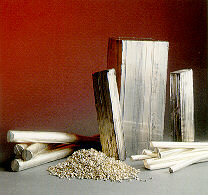 Lithium Tek Main Page
Lithium Tek Main PageYou are visitor #
 Lithium Tek Main Page
Lithium Tek Main Page
You are visitor #
| Lithium Tek Main Page | About Lithium Tek batteries | Products | Safety, storage, shipping, and disposal | Order Lithium

Lithium Tek Headquarters
About Lithium Tek
Lithium Tek was co-founded by two battery researchers and friends, Henry
Young and Anant Patel. It all started when we were working on a chemistry project at
the George Washington High School lab in San Francisco. After 2 years ofresearching,
we found new ways to shrink battery size, increase shelf life, increase run time, and
power. Headquartered in San Francisco, Lithium Tek continues to bring award winning
products.
Even though the Lithium batteries cost more, they store 3 times more energy than conventional batteries and they're non-toxic and recyclable.
We back our products with a full life time year warranty from defects and we also have free technical support. For more information on how to contact us, click here.
![]()
The Element
Lithium, the third element in the periodic table of elements, has many
unique properties and is used in the ceramics, lubrication, aluminium, battery and
pharmaceuticals industries. Lithium products are widely used in households, factories and
laboratories and may be as close to the average person as a medicine chest, television,
computer, swimming pool, calculator or cell phone. Lithium has the highest specific
heat of any solid element, making it a good for heat transfer. It is an alkali
metal.
|
Founded by: A. Arfvedson in 1817 Origin of name: From the Greek word "Lithos" Name: Lithium Symbol: Li Atomic Number: 3 Atomic Mass: 6.941 Melting Point (ºC): 180.5 Boiling Point (ºC): 1330 Density (g/cm³): 0.534 Electron Configuration: 1s³ 2s¹ Atomic Radius (pm): 156 Specific Heat (J/g*Cº): 3.569 (highest of solid elements) Oxidation States/Number: 1+ Color: Silvery white or white Odor: None |
Lithium is a metal and is the lightest of all solid elements. It is quite soft, yet when combined with agnesium, the resulting alloy is so tough it has been used experimentally as armour plate. Lithium metal is also highly reactive, yet many lithium compounds are as inert as common sand.

Production Process
Lithium carbonate is the product most commonly used in lithium production processes. There
are three grades; technical grade (the lowest quality), high grade and ultra high grade.
(The latter two grades are required for battery manufacturing and pharmaceuticals).
For more information on how a lithium battery is made, please visit another lithium battery maker, Battery Engineering.
Where can Lithium be found?
Lithium can be found in enriched brines, seawater, minerals, and mineral
springs. Lithium is not free, it is usually with another mineral.
What happens when Lithium reacts with another
element?
When lithium reacts with water or sodium,
it releases hydrogen gas.
When combined with magnesium, the resulting alloy is so tough it has been used
experimentally as armor plating.
Uses of Lithium
Batteries
Lithium batteries last 3 times or greater than than
akaline batteries.
Greases
Lithium based greases – multipurpose greases are now the most widely used. Of
all greases used in the USA 56% contain Lithium. Lithium based greases retain their
properties over extreme temperature ranges – from sub zero to over 150°C. They have
good water resistance, resist oxidation or hardening and if liquified, reform to a stable
grease on cooling. Lithium based greases are produced by most major oil companies.
Rubber
Lithium based catalysts produce high-performance rubbers and plastics. The use of
butyllithium to produce polybutadiene rubber gives tires low rolling resistance improving
gas mileage.
Ceramic
Ceramic compositions with low firing temperatures and low thermal expansion
containing lithium have lower melting temperatures and the finished ceramics possess very
low thermal expansion. Every day examples of Lithium induced thermal shock resistance
include popular and versatile whiteware ceramics and modern smooth-top ceramic kitchen
ranges.
Glass
Glass containing lithium forms at lower temperatures. Lithium is a powerful flux in glass.
When added to glass melt, lithium significantly reduces melting temperatures and glass
viscosity.
Medicine
Lithium carbonate is the drug most commonly used to treat bipolar
(manic/depressive) illness. Valproic acid and Tegretol
are also frequently used, sometimes in combination with lithium. There are different
brands of lithium in tablets, capsule, &
liquid form: Lithotabs, Lithane, Lithonate, Eskalith, Cibalith, & Lithobid. Lithobid
is a slow release version that helps
diminish side effects. Lithobid may cause diarrhea. Lithium is usually effective in the
treatment of the manic phase & in acute
bipolar depression. It serves as a mood stabilizer and is helpful in 70-80% of bipolar
patients.
Contact Lithium Tek
Toll Free Number/Technical Support: 1-800-LITHIUM (1-800-5484486)
Email: info@litek.com
Mail: Lithium Tek
1546 Energy Street
San Francisco, CA, 94109
Web page by Urquan
©1997 Lithium Tek